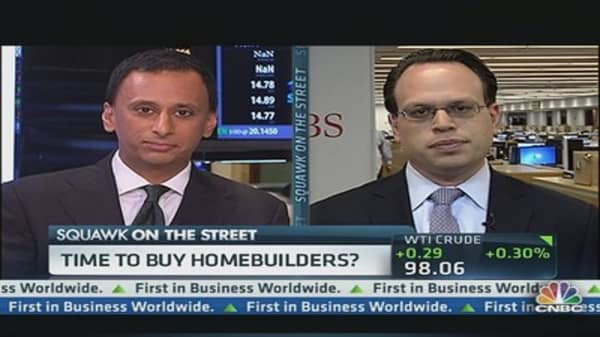(Read More: Home Builder Confidence Hits 7-Year High)
"What are they so excited about?" asked Hunter. "That they have pricing power."
Housing completions fell 0.9 percent to an annualized rate of 690,000, well below demand. Underlying demand consists of new households forming (about 1.1 million, according to Census data,) replacement demand (about 250,000 homes) and second home demand (about 50,000,) according to IHS Global Insight.
"The wide gap between housing completions and underlying demand suggests that inventories are likely to get leaner over the next 12 months," IHS analysts said in a report to investors. "For the record, it takes about seven months on average for a single-family permit to turn into a completed home."
The supply pinch can be seen quite dramatically in California, where there was barely a two-month supply of homes for sale in May. That, and a change in the mix of home sales from distressed to nondistressed, pushed the median sale price up 32 percent from a year ago. Some might call that a "bubble," but the real state agents do not.
(Read More: Rising Rates Scare Borrowers Into Action)
"While home prices are increasing at levels above those observed in 2006-2007, the fundamentals of the housing market are much more solid than what we experienced a few years ago," said Leslie Appleton-Young, chief economist for the California Association of Realtors. "More home buyers are putting down larger down payments, and many of them are opting for more stable loan products."
That may be, but the jump in the median California home price jump is predominantly due to a change in the mix of homes selling, that is, more nondistressed sales and fewer foreclosure and short sales. The median price is where half the homes sell for more and half sell for less. In May, distressed properties accounted for 31 percent of total sales in California, down from 52 percent of sales a year ago, according to Propertyradar, a data and analytics company. Meanwhile, nondistressed sales were 69 percent of total sales, up from 48 percent a year ago.





